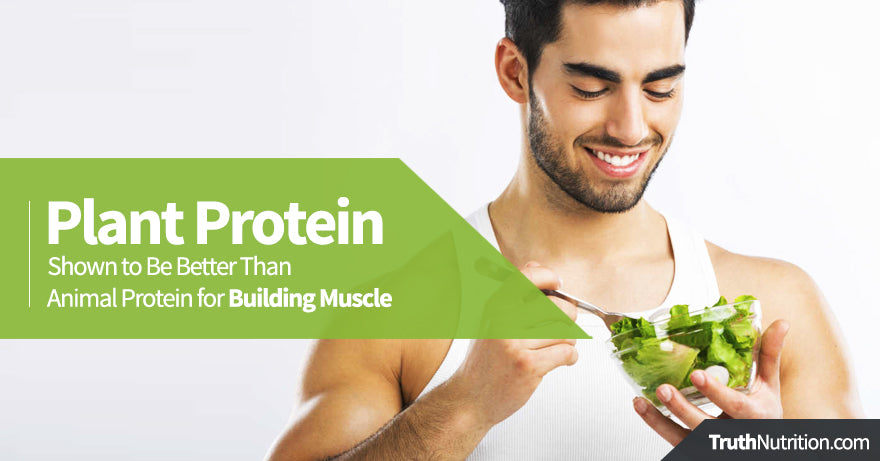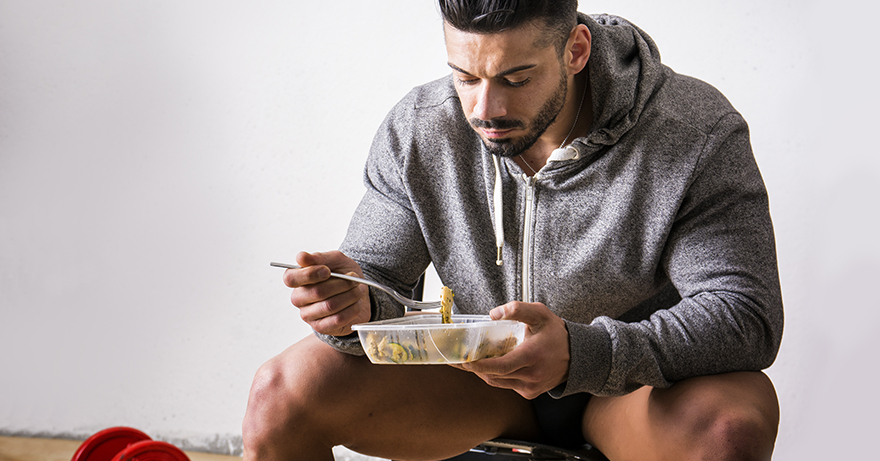Plant Protein Shown to Be Better Than Animal Protein for Building Muscle

Yet, every day there’s more and more successful athletes stating that they’re vegan. For example, Patrik Baboumian, Germany’s Strongest Man in 2011 and world record log lift holder, is completely vegan. Clarence Kennedy, an irish weightlifter who’s popular in the online community, has said that there’s “just no good argument against veganism” after switching to plant-based in 2016. Kendrick Farris, the only man to compete for Team USA’s Olympic weightlifting team in the Rio Olympics, has made a 209kg (461lb) clean and jerk. He stopped eating meat in 2014 after the birth of his son stating that “it was a time of reflection on the things I want to teach him, and the example I want to set for him”. If you need any more persuading, then check out Great Vegan Athletes for the extensive list of successful, strong, and powerful vegans across the globe.
In 2017, a study was published in the American Journal of Clinical Nutrition showing that both plant-based protein and meat protein actually don’t have much of a difference when it comes to their impact on muscle building. Yet, the plant-based protein didn’t come with the same health issues as their plant-based alternatives.
When you think about, this is something we knew already. Plant-based proteins tend to come with an abundance of vitamins, minerals, and fibre whereas meat-based proteins can often be processed and damaging for our heart and colon. Hormones, saturated fat, endotoxins, trans-fats, and copper are all very real components of many meat-based protein sources.
It’s important to note that plant-based alternatives are not without their evils. We all like to think that we live off quinoa, kale, and chickpeas all the time, but the reality is that there’s now more plant-based ‘treats’ than ever before. The fridges and freezers are now stocked to the brim of meat-free alternatives that come with their own health issues, and vegan protein powders can often come with more added ingredients than whey in order to make them taste better.
Therefore, when choosing your protein sources, make sure to keep them as natural as possible to avoid falling into the vegan trap: just because something’s vegan doesn’t make it healthy.
Also in Featured Articles

Cross Training Improves Fitness and Reduces Injury
You may be in great shape, for the sort of exercise you do routinely. But if that's all you do, day after day, you may be setting yourself up for injury or mental burnout, and that is not a good way to get fit. What can help prevent injury and burnout? Cross training.

7 Nutrition Hacks for Elite Performance You’ve Never Tried Before
As athletes progress toward higher levels of competition and training, nutrition plays a much bigger role in their ability to perform and recover. Aside from simply receiving adequate caloric intake, there are other roles nutrition plays and systems that it influences.

Exercise helps inhibit cancer - Breakthrough study reveals how
Exercise affects almost all tissues in the body, and scientists have found that being physically active can reduce the risk of several types of cancer as well as improving outcomes for cancer patients.

